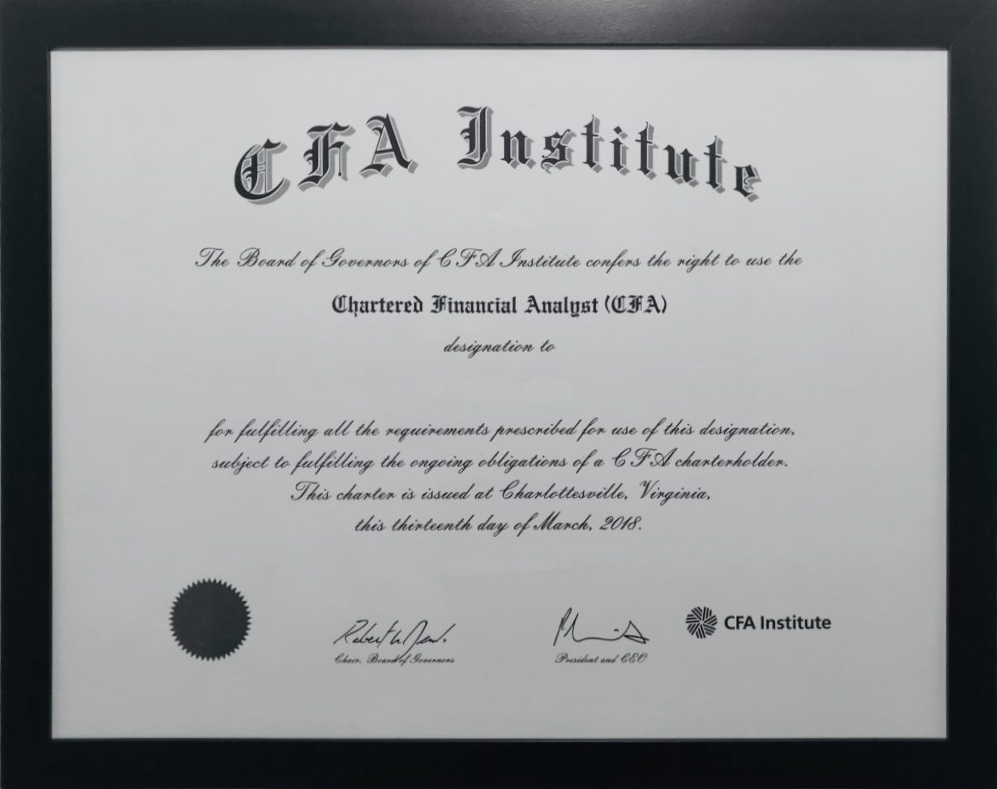Chartered Financial Analyst Course
For over seven decades, the CFA charter has been the gold standard for investment professionals. At Unique Global, we are committed to helping you achieve this prestigious designation. Our expert guidance and comprehensive curriculum will equip you with the knowledge and skills to excel in the dynamic world of finance.
Leading the Future of Finance with the CFA Charter
CFA Course Eligibility
CFA Career & Opportunities
Investment Management Sectors after CFA
Jobs for the CFA Charterholders
CFA Exam Details
CFA Salary
CFA Syllabus
| CFA® Subjects | Level 1 | Level 2 | Level 3 |
|---|---|---|---|
| Ethical and Professional Standards | 15–20% | 10–15% | 10–15% |
| Quantitative Methods | 8–12% | 5–10% | N/A |
| Economics | 8–12% | 5–10% | 5–10% |
| Financial Statement Analysis | 13–17% | 10–15% | N/A |
| Corporate Issuer | 8–12% | 5–10% | N/A |
| Equity Investments | 10–12% | 10–15% | 10–15% |
| Fixed Income | 10–12% | 10–15% | 15–20% |
| Derivatives | 5–8% | 5–10% | 5–10% |
| Alternative Investments | 5–8% | 5–10% | 5–10% |
| Portfolio Management and Wealth Planning | 5–8% | 10–15% | 35–40% |
Master Global Financial Courses with Unique Global Education
CFA Classes in Pune Offerings
| Offerings | Level 1 | Level 2 | Level 3 |
|---|---|---|---|
| Study Material | ✅ | ✅ | ✅ |
| Question Bank | ✅ | ✅ | ✅ |
| Personal Analysis | ✅ | ✅ | ✅ |
| Study Planner | ✅ | ✅ | ✅ |
| Jammer Session | ✅ | ✅ | ✅ |
| Mock Exams | ✅ | ✅ | ✅ |
| 100% Placement Assistance | ✅ | ✅ | ✅ |
| 150+ hours of Free Programs | ✅ | ✅ | ✅ |
| Study Material (Soft Copy) | ✅ | ✅ | ✅ |
| Unique Bridge Course | ✅ | ✅ | ✅ |
| Corporate Grooming Program | ✅ | ✅ | ✅ |
| Test Series | ✅ | ✅ | ✅ |
Endless Opportunities Await














Join Our Expert-Led Webinar
Enhance your skills and stay updated with our expert-led webinar. Learn from experts, engage in live sessions, and connect with a community of like-minded individuals.
CFA Certification
Achieve the prestigious CFA Charter with Unique Global Academy and gain the expertise you need to excel in investment and finance. Our in-depth CFA Program is crafted to propel your career forward, equipping you with essential skills and insights to navigate and lead in today’s dynamic financial world.

Kickstart Your CFA Journey Today!.
Download the CFA Syllabus and Dive into Your Path to Excellence. Get the Complete Brochure Now: Discover all the essential details and strategic insights to set yourself up for success in the world of finance.

Offering 3 exclusive programs
absolutely FREE with your CFA enrollment.
At Unique Global Education, our Vision and Mission is to provide cutting-edge, industry-relevant programs that not only educate but also equip you to become highly employable professionals.
- Accounting Terminologies Journal
- Accounting Rules
- Ledger
- Trial Balance
- P and I Account
- Balance sheet
Course Duration: 30-40 hours
- Basics in Finance
- Strong Grasp in Accounting Principles
- Accounting AS and ind AS
- Basics in Audit Techniques
- Basics in costing strategies
- Understanding Management Essential
Course Duration: 60-70 hours
- Communication skills
- Leadership skills
- Decision making skills
- Technical /Analytical skills
- Advance Excel/Word
- Power BI Tools
- Financial Modelling
- Equity Research
Course Duration: 60-70 hours
- Plan & Strategy for Revision and Marathon
- Time Management with Positive Mindset
- Real Exam based Question solving & Test
- Subjective Question Practice
- Typing Speed Practice
- Homework & Assignment
- Past Year Question Solving
- Full Syllabus multiple Mock Test
Course Duration: 60-70 hours
Frequently asked questions
CFA Program Overview:
● Global Reach: 200,000+ charterholders worldwide.
● Three Levels: Covers investment tools, asset valuation, and portfolio management.
● Pass Rates: ~40% (Level 1), ~45% (Level 2), ~55% (Level 3).
● Duration: 2-4 years, depending on study pace.
● Curriculum Updates (2024): Includes ESG, AI, ethics, and advanced quantitative methods.
● Work Experience: Requires 4,000 hours in finance or investments.
● Enrollment: 200,000+ candidates register annually.
CFA Program Overview:
● Global Recognition: 200,000+ charterholders in 160+ countries.
● Comprehensive Curriculum: Three levels with ~40-55% pass rates.
● Career Growth: Opens doors in investment management and financial analysis.
● Ethical Focus: Strong code of conduct for trust and credibility.
● High Demand: Recognized by 1,000+ global firms.
● Work Experience: 4,000 hours required for practical expertise.
● Duration: 2-4 years with flexible study options.
● Annual Enrollment: 200,000+ candidates worldwide.
With its strong online presence, expert-led classes, pan-India student base, and proven results, UGE has become a go-to institute for CFA aspirants from Delhi, Bangalore, Hyderabad, Chennai, and beyond—making it one of India’s most reliable CFA coaching platforms.
CFA and CA are challenging in different ways, although CA has a lower pass rate and a longer duration, making it generally tougher than CFA. CA covers a broader range of subjects like accounting, auditing, and taxation, while CFA focuses on investment management and financial analysis.
CFA professionals earn ₹8–18 lakh/year at entry-level, with experienced roles exceeding ₹25 lakh/year, especially in sectors like investment banking.
Visit the CFA Institute website, ensure eligibility, create an account, complete the registration form, pay fees, select exam details, and access study materials.
Unique Global Education is Pune’s most trusted CFA coaching institute, with experienced faculty, excellent infrastructure, live + recorded classes, and a high success rate among local students. Its student-friendly location in Pune makes classroom learning accessible for finance aspirants across the city.

















